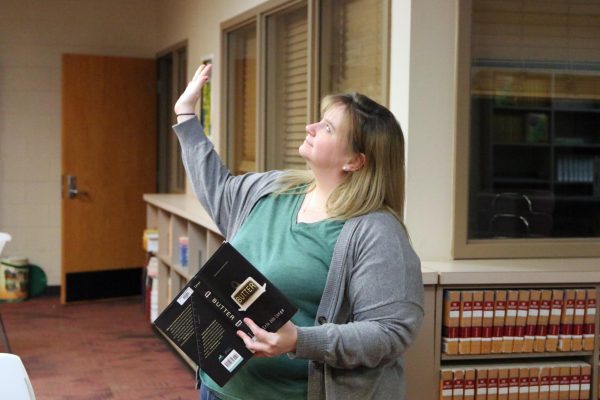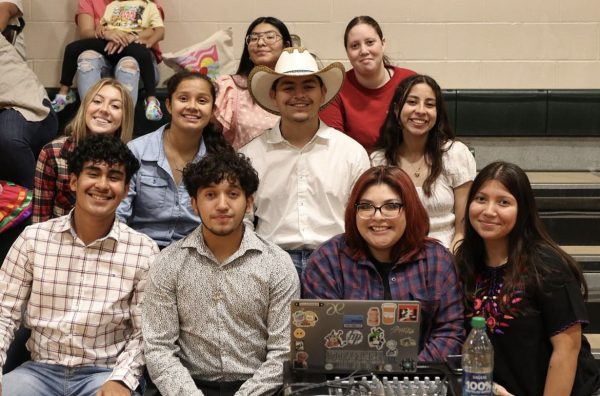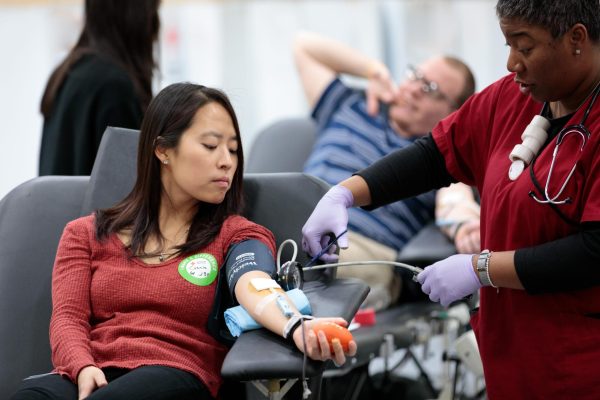HCP Governance Board votes to support teacher walkout
Teachers and students at HCP watch and wait for the Oklahoma Legislature to pass a revenue package that includes teacher pay raises and education funding
March 27, 2018
Teachers and students at HCP watch and wait for the Oklahoma Legislature to pass a revenue package that includes teacher pay raises and education fundingIn a Tuesday meeting, the 10 attending HCP Governance Board members voted unanimously to support teachers in their decision to participate in state-wide rolling strikes beginning April 2.
The upcoming walkout will hit hard, interrupting state testing, fourth quarter grades, and AP prep. Proponents of the strike argue that this unique combination of factors will make this strike more potent, and thus shorter than it would otherwise be.
It comes on the heels of a successful West Virginia teachers’ strike that lasted nine days. Algebra II teacher Michael Lewchuk described the walkout as “our last kick at the can in the next 20 years” and he isn’t exaggerating — the last teacher strike in Oklahoma was almost three decades ago.
The decision followed half an hour of public comments, with many teachers attesting to the struggles of their low pay, and parents voicing concerns about students not being prepared for upcoming testing or finishing the year on time.
“Teacher pay has increased 3.8% since 1990,” said teacher Kelli Taylor, citing a Tulsa World article. “I was 9 years old then. I’m 37 now. My pay has been stagnant.”
Another teacher, who preferred to remain anonymous, told of the choices that a low paycheck had forced them to make. “My child had the flu,” they said, “and we had to decide at what point do we take our child to the emergency room when we can’t afford it?”
Freshman physics teacher Clark Ellis spoke about the long term difficulties he has faced. “I’ve never seen a comma on my paycheck,” Ellis said. “Eventually I have to look my wife in the eye and ask some very tough questions about our future… I love it here, but I will not be here in two years if something does not change.”
HCP alumna and Russian teacher Crystal Walker has to work two extra jobs outside of Harding to make ends meet. “It’s just not enough,” Walker said. “[The strike] seems radical to some people because it causes disruption, but disruption is the only way to get where we need to go.”
Some teachers, like Taylor, had ideological reasons to join the strike despite potentially leaving students in the lurch. “My word of the year was ‘fight,'” Taylor said. “This is my fight. This is the one hill I’m willing to die on. It would not be fair to enjoy the spoils without riding into battle.”
Parents at the meeting seemed far more hesitant to endorse a strike, with so much hanging in the balance for their children.
The one parent to publicly comment raised concerns about the Board’s obligation to safeguard the operation of the school. After the meeting, the parent commented to the Marionette that his principal concern was the potential inability to prepare for AP testing and to make up grades before the end of the year.
These concerns are shared by students as well. In a poll of 55 students conducted by the Marionette, 75% of respondents were most concerned with exactly those two issues.
Another concern some students had was being forced to cancel travel plans due to an extended school year. During the meeting, principal Dr. Mylo Miller said that if the school counts attendance by hours, the school currently has a surplus equivalent to seven missed days of school before days must be added to the end of the year.
Despite these concerns, 60% of students polled in support of an indefinite teacher walkout, with a further 37% advocating for a one-day walkout before resuming normal classes. Only two students preferred no strike at all.
Miller described the situation as “a delicate balance between our students, teachers, and parents,” and stated that “as we get closer to April 2, we have to advocate for our teachers and for our school.”
One result of low pay has been an excess of teacher turnover, not just at Harding but all across the state. With this rationale, Miller voiced his support for the teachers because he wanted Harding to be competitive with everyone else. “Our students deserve that,” he said.
Late Monday night, the Oklahoma House of Representatives passed a spending measure, House Bill 1010, which would give teachers raises of $6,000.
The bill would fund the raises with an increased tax on hotels, tobacco, gas, and diesel. The bulk of the funding, however, would come from an increase in the Gross Production Tax (GPT) from a national low of 2% to still a national low of 5%.
The bill still faces the Senate sometime in the next week where a supermajority (75%) of legislators must vote in favor.











